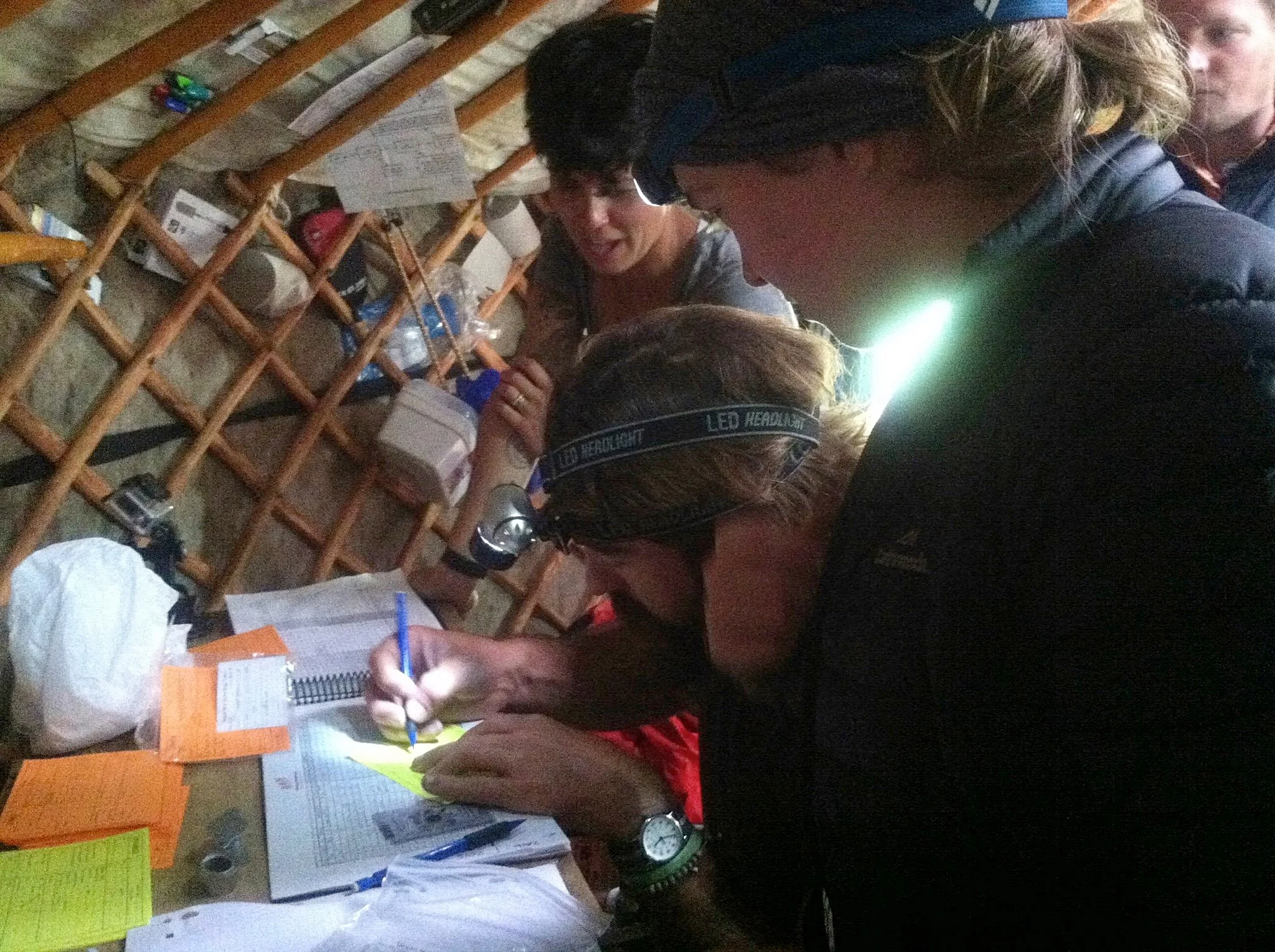Teaching Philosophy
Anthropology
can powerfully support the development of critical thinking in the classroom and beyond. As an educator, I promote critical thinking by helping my students build and evaluate evidence-based arguments, consider viewpoints other than their own, and communicate these ideas clearly and effectively. These three principles are the foundation of my teaching philosophy and shape the design and content of my courses.
Evidence-Based Learning
The most important responsibility of educators and social scientists today is to teach students the value of evidence-based scholarship. In my classes, students analyze real excavation and survey data to reconstruct households' economic strategies and social standing. This data is inherently messy and can be interpreted in several ways, encouraging students to develop clear hypotheses to test with the evidence at hand.
Considering Alternative Perspectives
I strive to create an inclusive classroom environment that caters to diverse cultural and socioeconomic backgrounds and learning styles. In my anthropology courses, I use discussion as a tool to support this diversity by encouraging students to share their own experiences and learn from one another. Through respectful discourse, students are able to glimpse perspectives beyond their own and to question their worldviews.
Effective Communication
Students leave my classes not only able to understand archaeological research, but also equipped with the skills they need for success beyond the classroom. The ability to work in a group, speak in public, present a slideshow, and write effectively, are essential tools for professionals in all fields. I assign a variety of group projects, presentations, and papers that are designed to help students become better collaborators, compelling speakers, and concise writers.
Courses Taught
I have taught a variety of courses in multiple subfields of anthropology as both a teaching fellow and an independent instructor. My interest in pedagogy and curricular development led to my nomination as the Department of Anthropology Teaching Mentor (2016-2017). As Teaching Mentor, I worked alongside the Dean of the School of Arts and Sciences, the University of Pittsburgh Center for Teaching Excellence, the Graduate Studies Coordinator, and the faculty and student instructors of the department to provide training and support to new instructors, and to develop special teaching workshops. These workshops included Authority in the Classroom, which highlighted the challenges non-traditional instructors (people of color, younger graduate students, non-native speakers of English, etc.) face when leading a class and techniques for mitigating these issues, and Approaches to Grading, which outlined ways to provide students with constructive feedback on writing assignments and introduced methods to keep essay grading straightforward and fair.
Instructor of Record
Origins of Human Societies (2018 - Columbia University)
How China became Chinese (2018 - New York University)
Chinese Archaeology (2016)
Teaching Fellow
Introduction to Cultural Anthropology (2013, 2017)
Mesoamerica Before Cortez (Prehistoric Mesoamerican Archaeology; 2011, 2012)
The Archaeologist Looks at Death (Introduction to Forensics and Mortuary Archaeology; 2012)
Field School Instructor
Targan Nuur Archaeology Project (2012)
Northern Mongolia Archaeology Project (2016)
Selected Student Reviews
“Professor Sturm is a better professor than majority of the full-time professors I've had at [—]. She is approachable, knowledgeable, and runs class extremely efficiently. She communicates well, responds to emails promptly, and is always available in office hours. She facilitated class discussion well, 5 of 5 and every single student participated and engaged in one way or another. I have nothing to complain about Professor Sturm.”
“This was more than I could ever hope for in an Archaeology class. I found the material and questions based on what made China Chinese to be fascinating…”
“The best thing for me in this class is the selections of reading that we have done. I loved that the range of the topics and perspective is so wide that they are extremely thought stimulating.”
“Camilla was the bright spot in this course. She clarified all of the questions that anyone had--and some of us had a lot. She also made everything more interesting by making it more applicable to our daily lives with examples from the US and Pitt. I liked her review games and thought that she was fair in her grading and with those study sheets. She took pains to be accessible to students and I appreciated it. I have nothing by rave reviews for Camilla…”
“The use of discussion really made learning the concepts and talking about what we learned in lecture and read about much easier to understand and process. The way you lead recitation allowed for deeper thinking and more stimulation in regards to the topics in class.”
“She was especially good at making concepts relatable by really breaking them down. She made sure to always have present examples. Class was pleasantly thought-provoking.”
“She clarified assignments extremely well + laid out the steps to answer problems in a way that allowed us to come to make our own conclusion while still being very helpful.”



